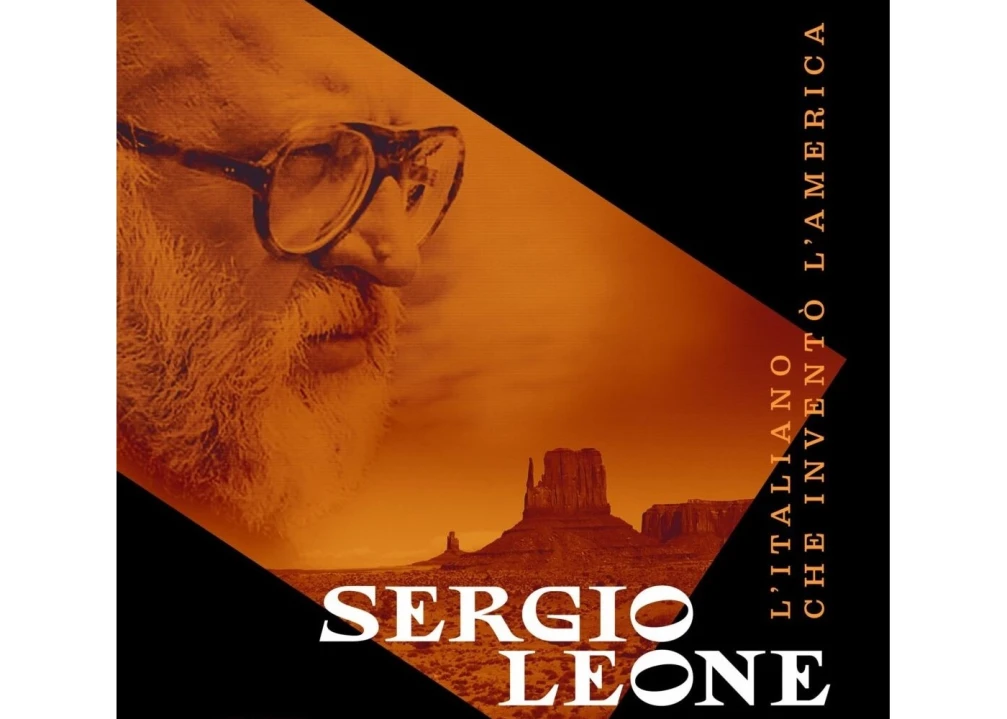His son Andrea recounts: "Once Upon a Time in America was supposed to be called Once Upon a Time: America but my father said the title was too 'cocky.'" It took almost 40 years and a beautiful documentary film for us to realize that, at least on that occasion, Sergio Leone was too humble. And perhaps it is no coincidence that the title of the film written and directed by Francesco Zippel, presented as a world premiere at the Venice International Film Festival, has a much more "presumptuous" title than that of Leone's masterpiece.
"The Italian Who Invented America". Exaggerated? Not if directors from different eras and genres, from Steven Spielberg to Martin Scorsese, Quentin Tarantino, Giuseppe Tornatore and Damien Chazelle, cartoonist Frank Miller, actors such as Robert De Niro, Eli Wallach (2014 interview), Jennifer Connelly and Carlo Verdone, certify it. And logically Clint Eastwood, his children Raffaella, Francesca and Andrea, and old interview clips with Ennio Morricone.
One hundred and seven minutes of anecdotes old and new, of distinguished testimonies tracing Leone's life, a tribute to one of the great legends of world cinema, too hastily passed over in film history only for being the inventor of the spaghetti western. It is an unprecedented portrait of a visionary and deeply cultured man who lived and breathed cinema from its inception and whose output continues to live and influence the film world. The film was born out of a meeting between director Zippel and Raffaella Leone.
"As a child, I was thunderstruck by The Good, the Bad and the Ugly," Zippel says, "and when Raffaella Leone proposed to me to tell the story of her father in a documentary, I felt that everything was coming back. I wanted to try not only to tell the story of Leone, but also to clarify how his cinema and creative genius are still central and sources of inspiration for the greatest contemporary filmmakers. All the great artists who joined the film are the most beautiful confirmation of that."
Yeah. One only has to listen to some of the film's protagonists. Steven Spielberg: "No one has ever been able to make films like him, he could tell stories. I would like to thank him for the many ideas he inspired me through his films. For me he will always be the giant on whose shoulders I was able to lean." Martin Scorsese: "He is contemporary. The beauty of his films lies in modernism and boldness. He and Peckinpah extrapolated the mythic aspect of John Ford's films and took it in another direction. Specifically toward capitalism, oppression, exploitation." No doubt Quentin Tarantino: "I think his films mark the beginning of modern cinema. I learned from the grandeur of how he used dolby and all his film technique and his editing rituals. I learned and assimilated everything I could."
But his younger colleagues also pay tribute to him. Damien Chazelle, 37 the youngest director to win an Oscar, describes Leone's legacy to us this way, "There are peculiarities of his films that stick in the mind and don't seem related to a specific period, his films seem as contemporary as when they came out and in theory will continue to be so for decades to come." Logically, the most important part of the film is devoted to westerns, from the Dollar Trilogy to Once Upon a Time in the West. But why did Leone's westerns "invent America"? Sir Christopher Freyling, the director's foremost scholar, has his own theory: "In the 1960s we all loved westerns, but we didn't believe what they represented. What Leone succeeded in doing was telling a story to a generation that no longer believed in it."
All correct, but not enough to justify the enormous success of Leone's westerns. Without bothering with sociological analyses and "lofty" concepts, Leone himself provides the explanation for the phenomenon with a very simple but very effective comparison: "In Ford's films when an actor opens a window it is always to look at the immense future in front of him. In my films when they open a window they are only terrified of getting a ball between the eyes." Cineteca di Bologna director Gian Luca Farinelli broadens the discourse: "After 70 years of cinema being the art of synthesis, Leone told us that cinema can also be the art of telling the waiting, that nothing is happening and this thing belonged to literature and not to cinema."
Zippel, however, does not stop at the directorial Leone, but also delves into his private life, his relationship with his children who were always present on the sets, always at the center of his life. And he lets us discover a little-known side of his character, far from the gruff and disenchanted Leone we all know. He does so through the tears of Jennifer Connelly, the 12-year-old Deborah from Once Upon a Time in America, as she recalls the set of the film, "Sergio was lovely. I still get emotional when I think about it. He was so sweet because he was so fatherly and caring and protective. He asked me if I wanted to shoot the first kiss scene: 'We can do it another day if you don't feel ready.' Who else acts like that?" In short, a film that does justice to the director who dreamed as a child on the steps of Viale Glorioso, thanks to the testimonies of artists who won 15 Oscars. But which in the end does not answer the question that Leone's fans, and not only them, have always been asking: how was it possible that The Italian Who Invented America did not take in his long career even one nomination for the statuette? The title of the next film dedicated to Sergio Leone could be The Mysteries of Hollywood.



